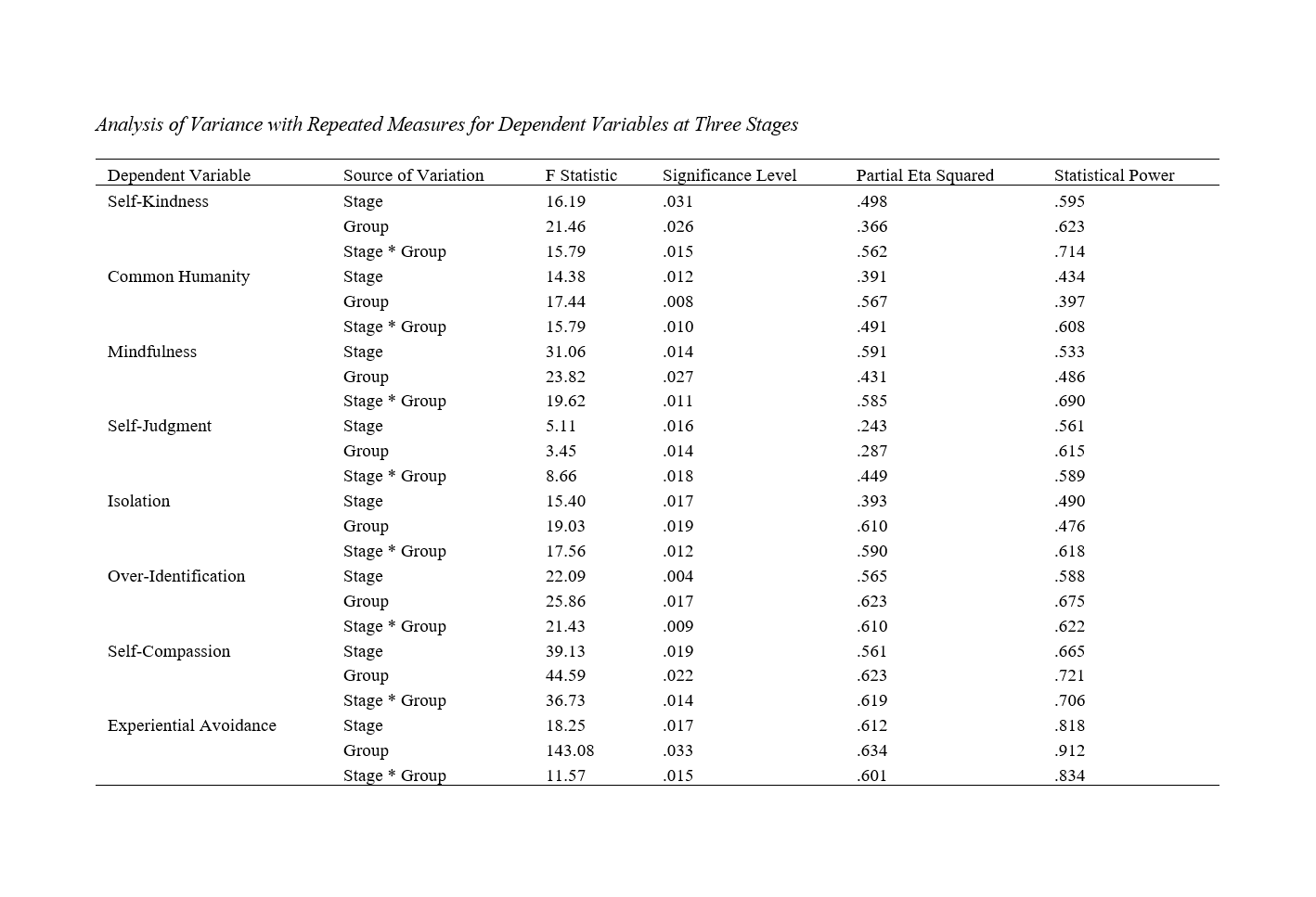Investigating the Effectiveness of Cognitive-Behavioral Therapy on Self-Compassion and Experiential Avoidance in Women Who Have Experienced Marital Infidelity
Keywords:
Cognitive-behavioral therapy, self-compassion, experiential avoidance, marital infidelityAbstract
Objective: Marital infidelity is one of the most significant threats to the stability of marital relationships and a leading cause of divorce across various cultures. This study aimed to examine the effectiveness of cognitive-behavioral therapy (CBT) on self-compassion and experiential avoidance in women who have experienced marital infidelity.
Methods: The current research was a quasi-experimental study with a pre-test and post-test design, involving experimental and control groups and a three-month follow-up. All women who had experienced marital infidelity and attended psychotherapy and counseling clinics in Tehran during the year 2021-2022 constituted the statistical population of this study, from which 30 were selected via convenience sampling based on the inclusion criteria and randomly assigned to two equal groups of 15. Data were collected using the Self-Compassion Scale (Neff, 2003) and the Acceptance and Action Questionnaire - Second Version (Bond et al., 2007). Participants in the experimental group received 8 sessions of intervention. Data analysis was conducted using descriptive statistics and one-way analysis of variance with SPSS version 26.
Findings: The mean self-compassion score and its dimensions in the experimental group significantly improved post-intervention compared to the control group (p < 0.05). Cognitive-behavioral therapy was beneficial in reducing experiential avoidance in the experimental group, unlike the control group (p < 0.05). The effects of this therapeutic program on dependent variables continued during the three-month follow-up period (p < 0.05).
Conclusion: Cognitive-behavioral exercises can be used as an effective intervention method to improve the cognitive-emotional status of women who have experienced marital infidelity.
Downloads

Downloads
Additional Files
Published
Issue
Section
License

This work is licensed under a Creative Commons Attribution-NonCommercial 4.0 International License.




















